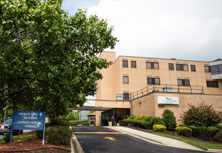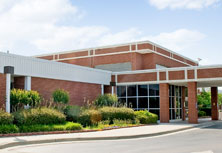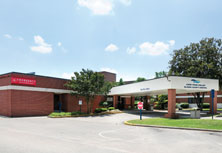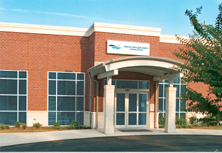Blood Conservation Program
Cape Fear Valley Health is committed to meeting the specialized needs of our patients, while respecting their personal choices. We offer blood conservation therapies to patients who wish to refuse or limit blood transfusions during medical and surgical procedures. The program is intended to assess a patient’s blood management needs and develop a plan of care using the latest technology, drugs and techniques to decrease blood loss and to enhance a patient’s own blood supply. Our Blood Conservation Program will also help promote a faster recovery, while decreasing the risk of infection.
What is blood conservation?
Blood conservation is a combination of techniques that focus on minimizing blood loss, building your own blood supply or both. Cape Fear Valley Health System has joined other leading hospitals by offering this special service to patients seeking alternatives that limit the use of blood or blood products.
About our Blood Conservation Program
Our program’s goals are:
- To provide education and medical alternatives to blood therapy
- To improve patient outcomes
- To improve patient safety through advances that shorten hospital length of stay, lower risk of infection and reduce blood loss
- To provide high quality patient care
Benefits of choosing Blood Conservation
- Promote a faster recovery
- Decrease the risk of infection
- Promote a shorter hospital stay
- Minimize the risk of transmitted diseases and viruses
- Avoid allergic reactions and complications
- Reduce stress on immune system
- Preservation of limited national blood supply
- Promote an overall better outcome
Blood Management
Blood management is the appropriate use of blood products and strategies to reduce or avoid the need for a blood transfusion. We deliver to our patients the latest medical and surgical advances in blood conservation. Various techniques are used to conserve blood, control bleeding or promote the growth of new blood cells turning the patient into their own blood bank. Some of the therapies include vitamins, medications and recycling a patient’s own blood. As a blood conservation hospital, other methods may be used to reduce your chances of having to receive blood. Blood conservation minimizes a patient’s blood loss before, during and after many surgeries or treatments for illnesses.
Patients
Cape Fear Valley Health System’s blood conservation program is patient centered and honors requests by patients who wish to participate in our program. We ask our patients to place themselves in one of two categories:Category I Patients
Patients absolutely refuse transfusions of donor blood (i.e. whole blood, red cells, white cells, plasma and/or platelets) even in life-threatening situations.
Category II Patients
Patients who wish to reduce their exposure to blood transfusions, but will allow transfusions during a life-threatening situation. These patients will still receive blood conservation care.
Not all patients may be good candidates for blood conservation; however, blood conservation techniques can be used on all patients. As a patient, you should ask your doctor or surgeon about blood transfusions and blood conservation.
- Will I need a blood transfusion? If so, why?
- What are the risks involved with blood transfusions?
- Am I a good candidate for blood conservation?
- What are the risks if I choose to minimize or avoid blood transfusions?
- Will I need iron, vitamins or medications to increase my blood count for surgery?
- If I do need a transfusion, how will it affect my recovery time?
- If my blood count level is low after surgery, how will it affect my ability to resume normal activity?
For more information
Cape Fear Valley Health System offers the services of a program coordinator to meet your and your family’s needs. Our dedicated Program Coordinator will work closely with you, members of your family and your doctors to answer any questions you might have about blood conservation. Our coordinator will be directly involved with you as a patient to see that your needs are met and to provide support. She can also provide physician referrals and assistance with outpatient services. If you have any questions about this program, call (910) 615-6295.










